The recent investigation by U.S. Department of Homeland Security in metro Detroit turned up scores of counterfeit auto parts. The probe, aided by Detroit Three automakers, netted scores of inexpensive, but fake parts for Ford, Chevrolet and Dodge car parts. The bust is a microcosm of a global problem costing automakers billions of dollars.
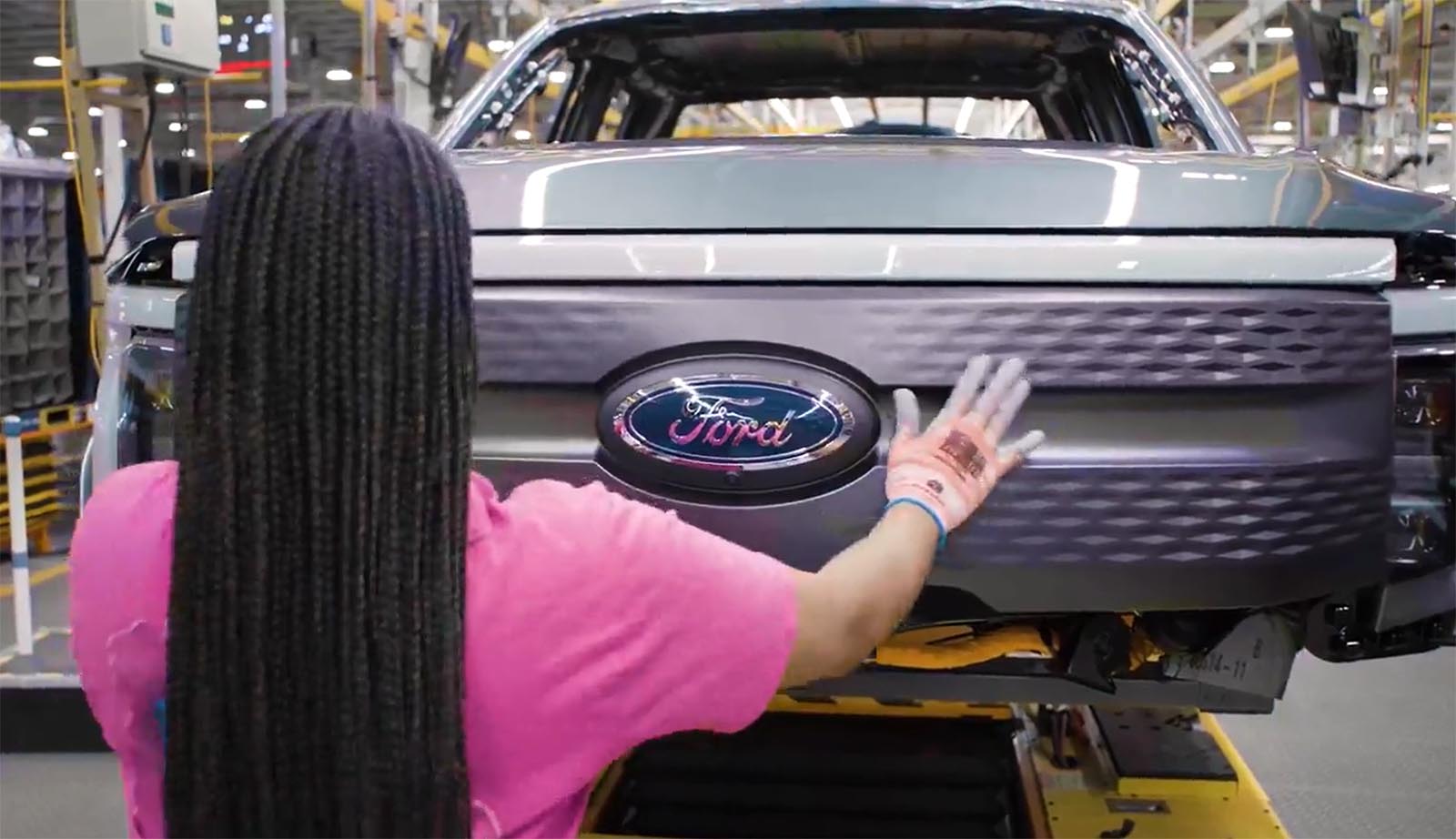
Counterfeit parts cost automakers billions of dollars each year as well as potentially endangering thousands of lives.
Federal agents focused on one repair shop in near Detroit, but it expanded to six total across the Detroit area, according to a story from the Detroit News. Based on the investigation, the found parts including bumpers, grilles, wheels, tires and thermostat hoses “stacked to the ceiling,” the News reported.
While that investigation is ongoing, it reflects a battle that automakers have waged for decades: counterfeit replacement parts. The Detroit News cited one instance where someone purchased a Dodge Journey grille for $76.32. The same authentic grille costs $464.
Not only do these parts represent lost revenue to automakers, but many of the parts are of inferior quality which presents a variety of issues, including safety. The problem is so bad that some automakers have “brand protection” teams.
Big money
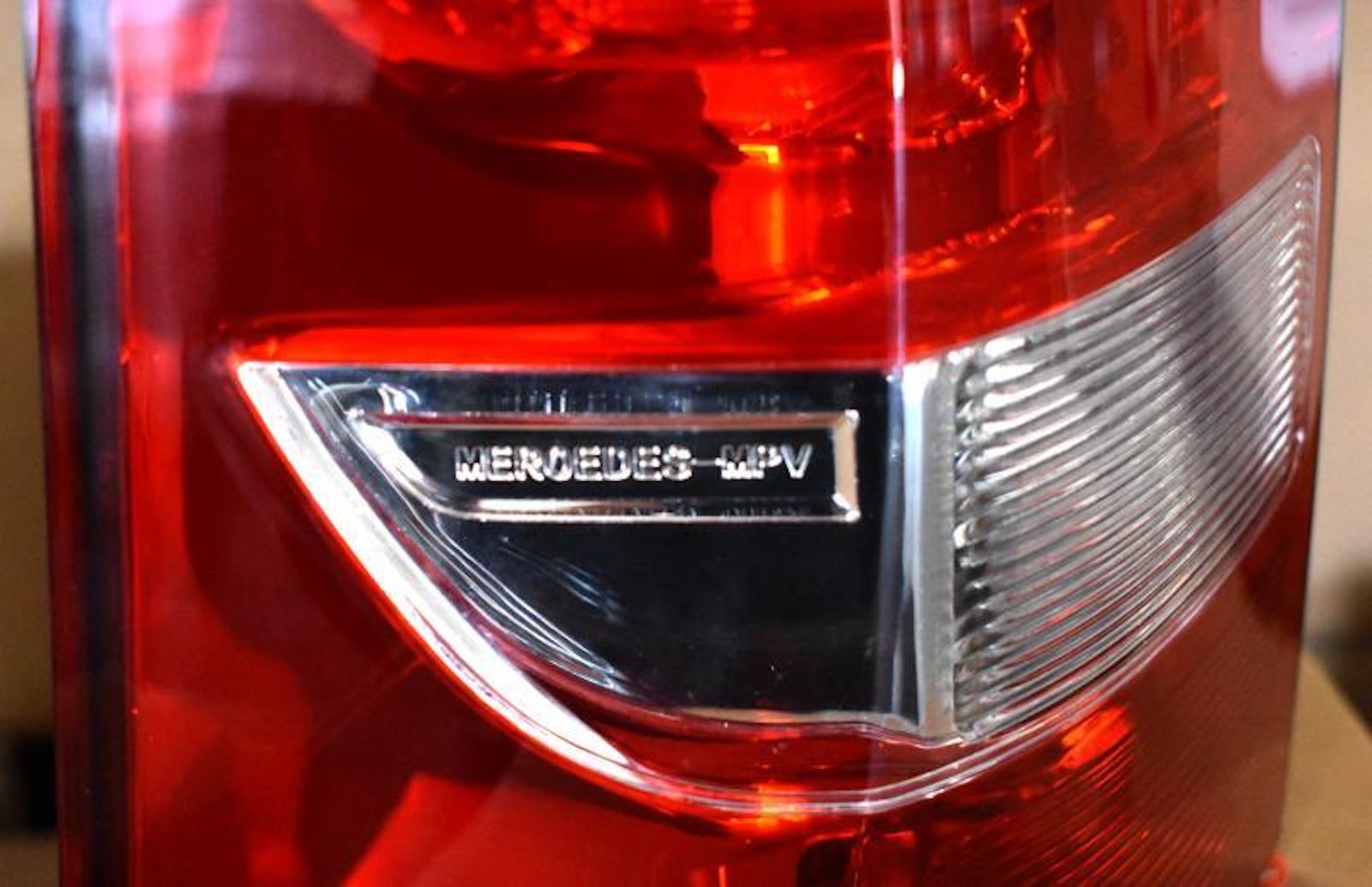
Counterfeit parts cost the industry $3 billion a year in the United States and $12 billion a year globally.
A Federal Trade Commission study estimated that counterfeit auto parts, which may not have undergone the same levels of testing and design, cost the industry $3 billion a year in the United States and $12 billion a year globally.
Despite the efforts of government agencies and automakers, the problem isn’t going away. The rise of the Chinese auto industry catalyzed the growth of the counterfeit part industry. China is a major source of the production of non-authentic components as well as the distribution of them from other nearby Asian countries.
Some of the components seized in Detroit were transported from Changchun, China, an industrial area known as the “City of Automobiles,” according to the Detroit News. But the parts find their way into the U.S. on a smaller scale as well via the internet. The internet makes it easier to move these components.
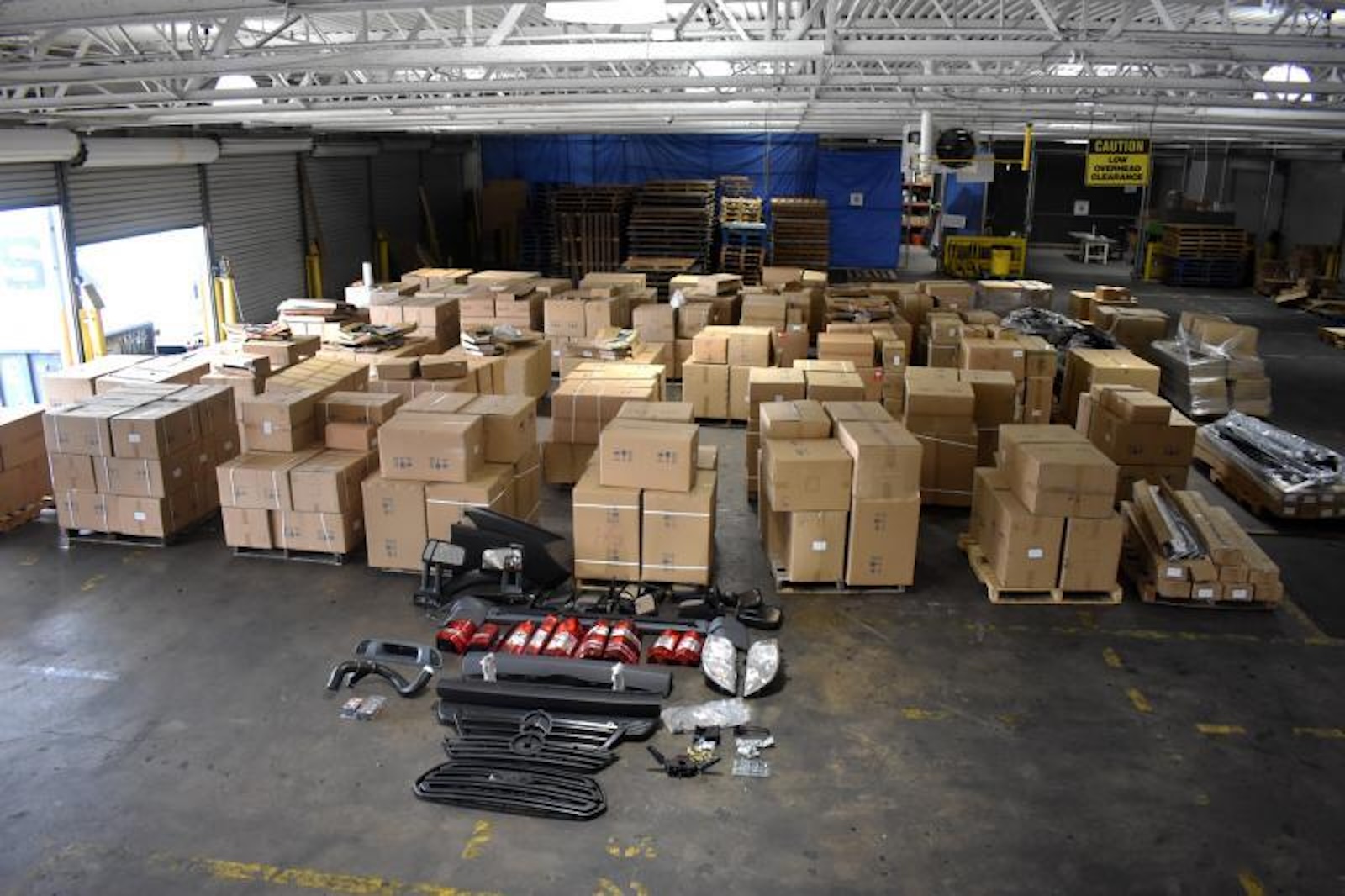
U.S. Customs & Border Patrol seize counterfeit parts across the U.S., like this seizure in Philadelphia.
“In 2022, a total of more than 1.6 million counterfeit products were seized in over 620 raids. The quality of counterfeit products is usually poor and does not meet the minimum legal requirements in terms of safety. Therefore, counterfeiting is a significant risk to the health and safety of road users,” the company said last August.
The luxury automaker noted it removed more than 155,000 products from online platforms alone in 2022, which is up from over 126,000 in the previous year. Most of the parts removed were safety related, such as wheels, brake discs and steering parts.
Drop shipments are arriving daily according multiple governmental and advocacy groups. The ease with which consumers buy coffee, t-shirts and new computers carries over to many automotive components. And it’s not just in the U.S., it’s a global problem.
The European Office of Intellectual Property (EUIPO) estimated that €2.2 billion is lost every year by the legitimate parts industry to counterfeit tire sales and €180 million each year due to counterfeit battery sales.
“Alongside the billions of legitimate online transactions, e-commerce platforms have become vulnerable to misuse and infiltration of fake and potentially unsafe products,” the organization noted.
“Criminal actors have seized opportunities to gain further profits from distributing counterfeit and pirated goods in the online supply chain. In blurring the distinction between genuine products and fakes, they succeed in selling staggering quantities of infringing items.”
The issue is so problematic that EMPACT, the European Multidisciplinary Platform Against Criminal Threats, implemented SPARE OFF, a recurrent operation to tackle the illicit trade of counterfeit automotive spare parts in the EU.
More safety stories
- Federal Safety Officials Upgrade Tesla Steering Probe
- Toyota’s Daihatsu Arm Halts Production After Admitting it Faked Decades of Safety Tests
- Honda, Acura recall 4.5 mil vehicles that could stall in traffic
Bigger safety issue
For decades, a variety of government agencies as well as just about every automaker has been fighting the problem. It’s so pervasive that 11 automakers representing 27 separate brands formed the Automotive Anti-Counterfeiting Council (A2C2) in 2015 to try to “eliminate counterfeit automotive components that could harm U.S. consumers.”
While the Detroit-area probe made headlines, counterfeit parts are a problem across the country. The parts discovered in Detroit are just the tip of the iceberg as they didn’t include many safety components. A 2023 report from the U.S. Trade Representative, confirmed — or reaffirmed — the prevalence and danger of counterfeit airbags, brakes, oil filters, spark plugs and other safety and operational components.
In the report, it notes “[c]ounterfeit airbags and their components can cause severe malfunctions ranging from non-deployment, under inflation, over inflation to explosion of metal shrapnel during deployment in a crash.”
The report also cited a demonstration by the A2C2 where it tested authentic and counterfeit airbags. The authentic part performed as expected while the counterfeit airbag “bursts apart, failing to protect the driver from significant impact.” The group performed similar side-by-side tests for aluminum wheels, brakes and brake pads.
“Counterfeit car parts are prevalent in the U.S. market and can threaten the day-to-day safety of American consumers,” the USTR said in its report.
The searches and seizure of counterfeit auto parts followed a rise in illegitimate goods being smuggled into the U.S. in recent years. In 2021, U.S. Customs and Border Protection officials made more than 27,000 seizures of counterfeit items that, if legitimate, would have been worth more than $3.3 billion — an increase in value of 152% from the previous fiscal year.

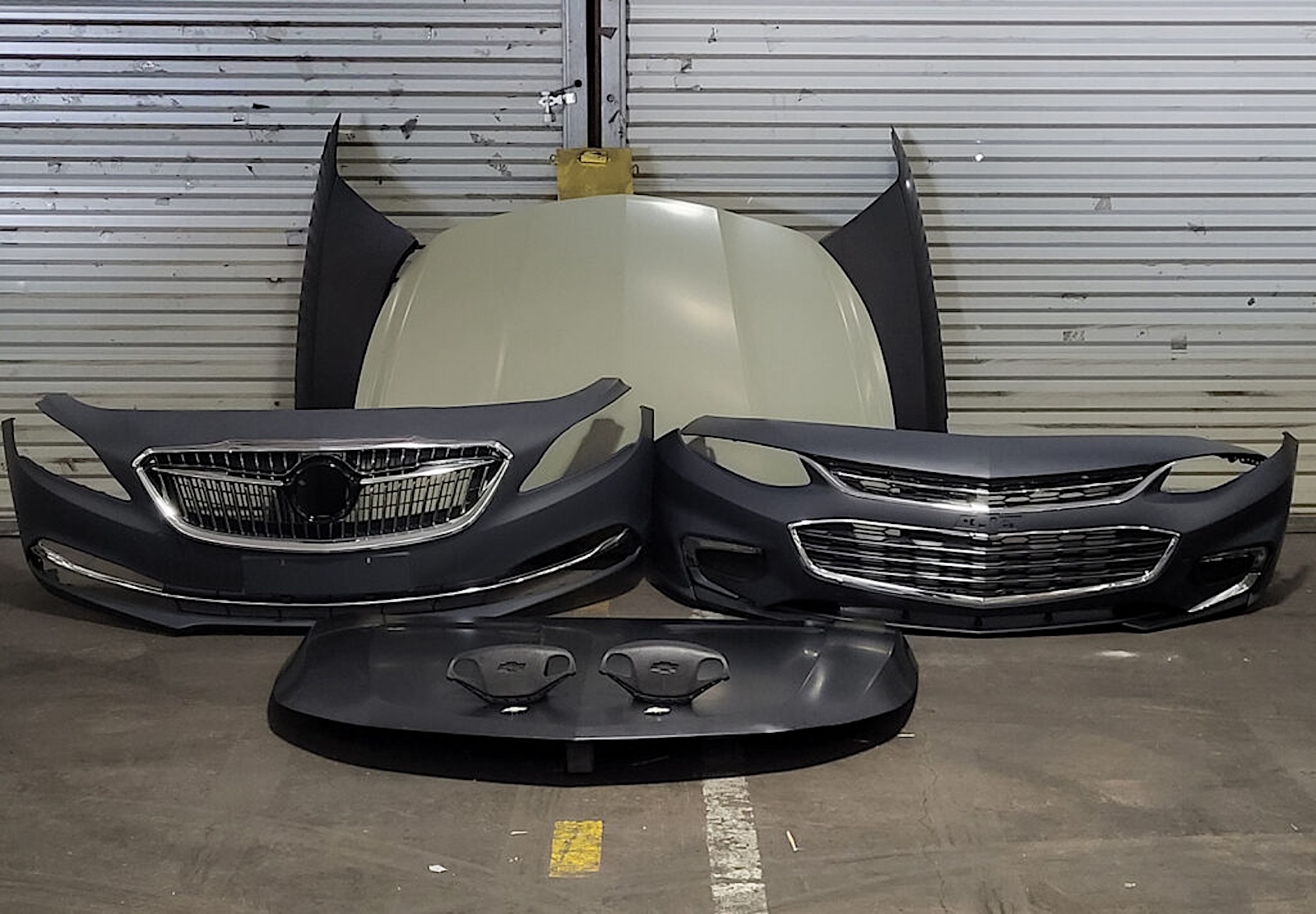
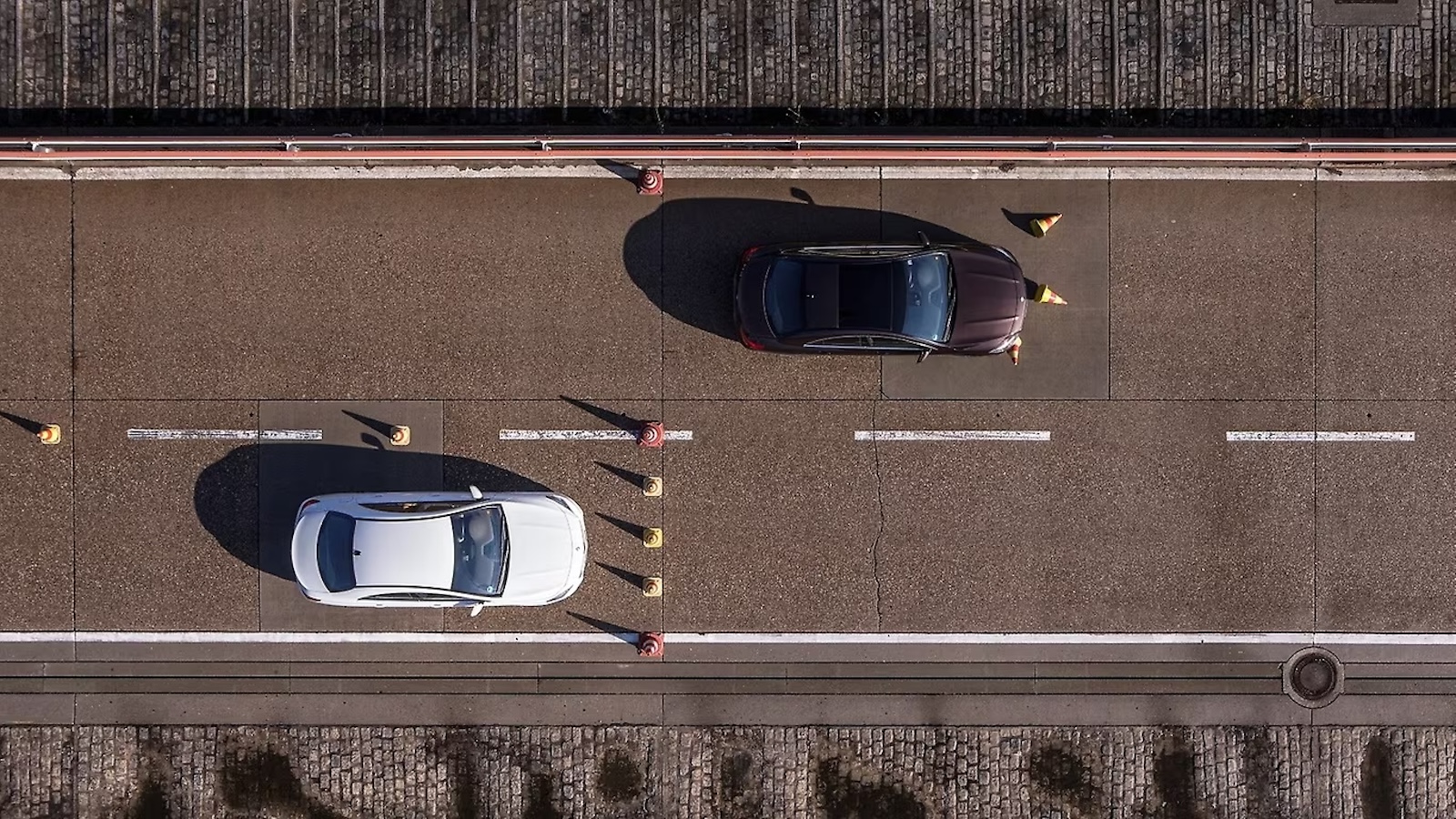
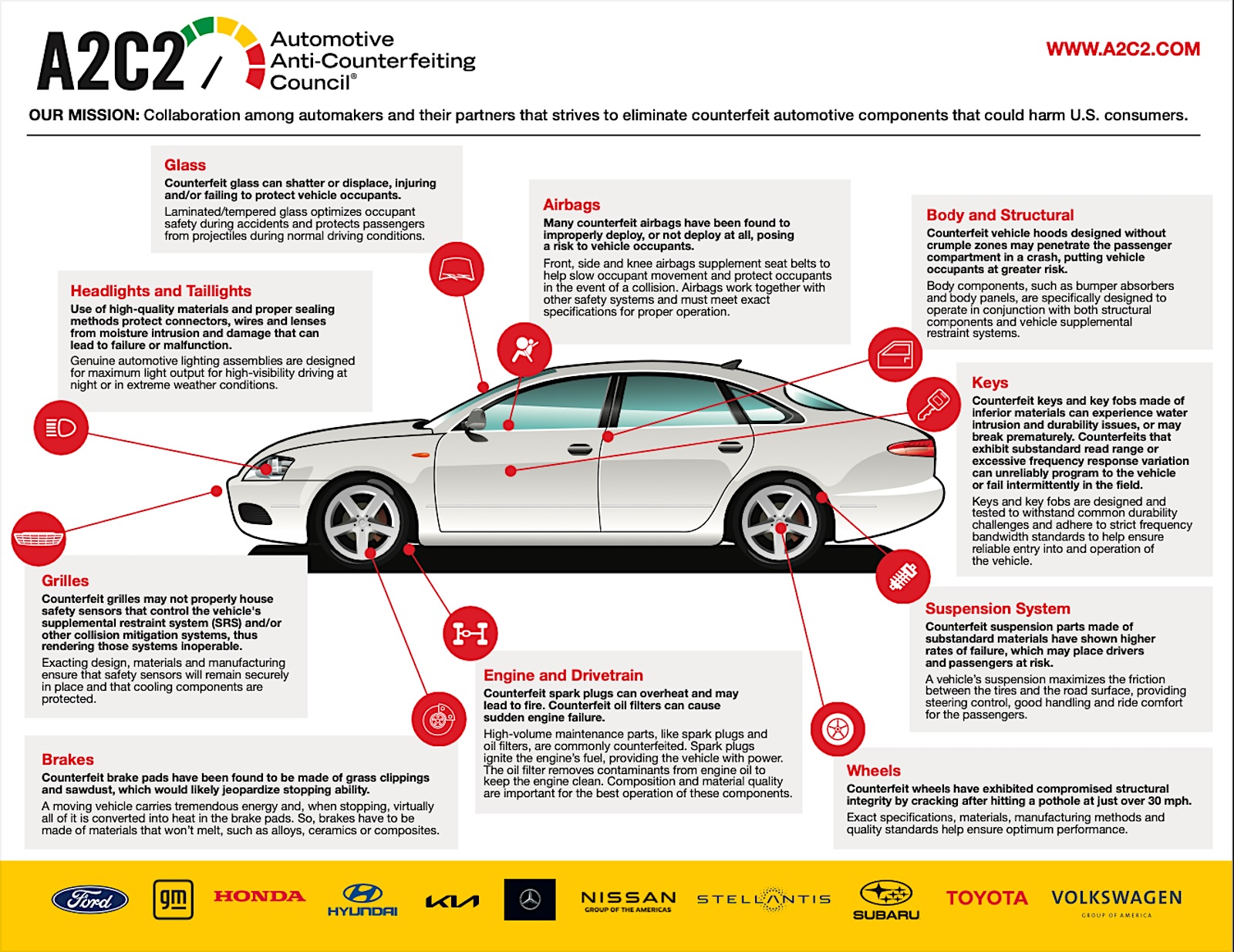



0 Comments